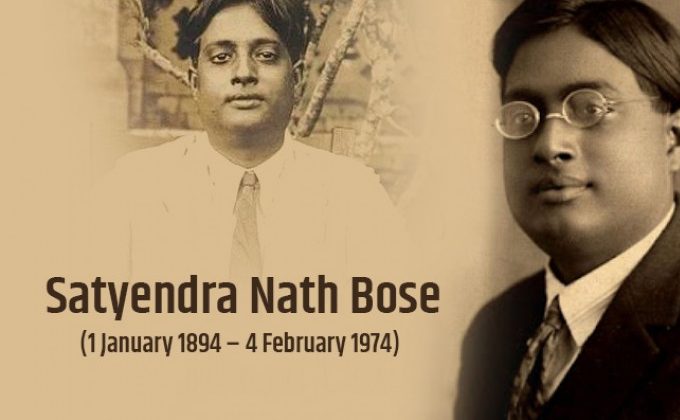Birth Anniversary of Satyendra Nath Bose
The Indian physicist Satyendra Nath Bose made significant contributions to the field of quantum mechanics, and his work with Albert Einstein led to the development of the Bose-Einstein statistics. On the occasion of his 129th birth anniversary, we take a look at his life and achievements.
Early Life and Education
Born in Kolkata, India in 1894, Bose showed an early aptitude for mathematics, thanks in part to his father, who gave him arithmetic problems to solve every day. Bose excelled in his studies, earning a Bachelor of Science degree at the Presidency College and later a MSc in Mixed Mathematics in 1915. He was only 22 when he was appointed as a lecturer at Calcutta University, alongside astrophysicist Meghnad Saha.
Breakthrough in Quantum Mechanics
While teaching Planck’s formula for the distribution of energy from black body radiation, Bose began to question the way particles were counted. He argued that one photon of light is not distinguishable from another of the same color and came up with his own derivation, rather than relying on classical electrodynamics. Bose recorded his findings in a paper titled “Planck’s Law and the Hypothesis of Light Quanta” and sent it to The Philosophical Magazine, but it was rejected. However, he did not let this discourage him and instead sent his research to Einstein, who recognized its importance and had it published.
This publication marked a turning point in Bose’s life and career. He was granted study leave from his university for two years and allowed to visit Europe, where he met other renowned scientists such as Paul Langevin and Madame Curie. He also joined the laboratory of Maurice de Broglie and learned techniques of X-ray spectroscopy and crystallography.
Return to India and Later Life
After his time in Europe, Bose returned to India and was appointed Professor of Physics and later Head of Department at Dhaka University in 1927. There, he devoted himself to teaching and research, designing equipment for an X-ray crystallography laboratory and publishing papers on various subjects. In 1945, he left Dhaka to return to the University of Calcutta as the Khaira Professor of Physics. He retired from the University of Calcutta in 1956 and spent a year as the Vice Chancellor at Viswa-Bharati University.
In 1954, the Indian government awarded Bose the Padma Vibhushan, one of the highest civilian honors in the country. He was appointed National Professor in 1959 and was elected as a Fellow of the Royal Society in 1960. Bose passed away in 1974, but his contributions to the field of quantum mechanics continue to be recognized and celebrated. Today, any particle that follows the Bose-Einstein statistics is known as a boson, in honor of Bose’s legacy.
Month: Current Affairs - January, 2023
Category: Important Days & Events Current Affairs


